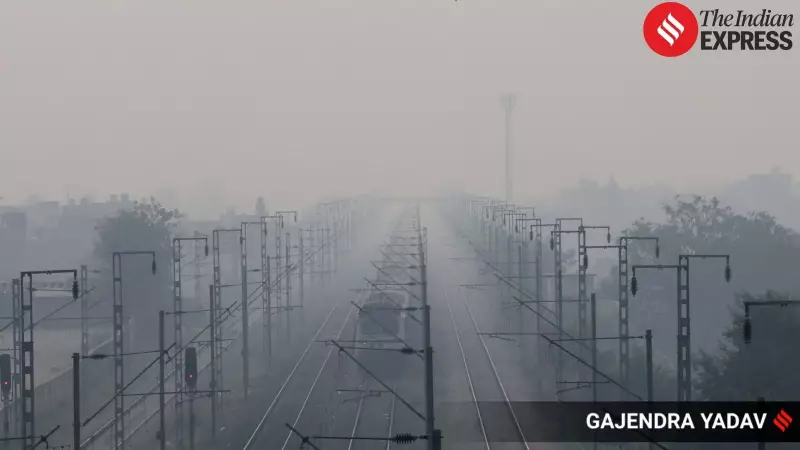
Delhi's post-Diwali air quality has taken a severe hit, plunging into the 'very poor' category with alarming readings across the National Capital Region. The festive celebrations have left behind a toxic blanket of pollution that has residents and authorities deeply concerned.
Critical Air Quality Readings Across Delhi
The System of Air Quality and Weather Forecasting and Research (SAFAR) reported disturbing numbers with Delhi's overall Air Quality Index (AQI) settling at 312, firmly in the 'very poor' zone. Several monitoring stations recorded even more worrying figures:
- Delhi University area: 342 AQI
- Pusa: 321 AQI
- Lodhi Road: 315 AQI
- Mathura Road: 310 AQI
- IIT Delhi: 308 AQI
- Indira Gandhi International Airport (Terminal 3): 303 AQI
Weather Conditions Aggravating Pollution Crisis
Meteorological factors are playing a crucial role in trapping pollutants close to the surface. The India Meteorological Department (IMD) has reported calm wind conditions and high moisture levels in the air, creating perfect conditions for pollution accumulation.
The minimum temperature recorded was 13.6 degrees Celsius, while the maximum is expected to reach around 29 degrees Celsius. These temperature variations, combined with virtually non-existent winds, are preventing the dispersal of harmful particulate matter.
Emergency Measures Implemented
In response to the deteriorating air quality, authorities have activated the Graded Response Action Plan (GRAP) Stage II measures across Delhi-NCR. These include:
- Enhanced parking fees to discourage private vehicle usage
- Increased frequency of public transport services
- Strict monitoring of construction activities and dust control measures
- Regular mechanized cleaning of roads and water sprinkling
Health Advisory for Residents
Medical experts are urging citizens, especially vulnerable groups, to take immediate precautions:
- Avoid morning and evening walks when pollution levels peak
- Wear N95 masks when stepping outdoors
- Use air purifiers indoors, particularly in children's rooms and elderly care areas
- Keep medications handy for those with respiratory conditions
- Stay hydrated and include vitamin C-rich foods in your diet
The situation remains critical as weather forecasts predict similar conditions for the coming days. Authorities are closely monitoring the AQI levels and may implement stricter measures if the 'severe' category threshold is breached.





